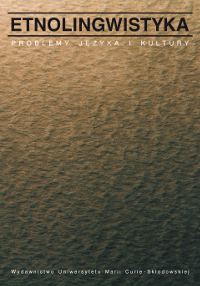Patriotyzm i nacjonalizm w polskim dyskursie ideologicznym
Patriotism and nationalism in Polish ideological discourse
Author(s): Małgorzata BrzozowskaSubject(s): Anthropology, Language studies, Language and Literature Studies, Applied Linguistics, Cognitive linguistics
Published by: Wydawnictwo Naukowe Uniwersytetu Marii Curie-Sklodowskiej
Keywords: Polish ideological discourse; values; cognitive definition; patriotism; nationalism
Summary/Abstract: The article presents an analysis of two highly ideological concepts designating a positive attitude towards one’s homeland and nation, as well as towards foreigners: patriotism and nationalism. The analysis has been conducted according to the principles of the cognitive definition. Patriotism is an attitude (or ideology) manifested by the love of and sacrifice for one’s homeland (as well as its defense, if necessary), care of her development and well-being. Patriotism is viewed as a „normal” and socially desirable attitude, focusing on one’s own country but recognizing the right of other countries and nations to exist and self-govern. One can observe, however, a degree of distancing from patriotism, a banality of discourse (in liberal discourse, which extends the notion onto everything concerning humans) or even negative valuation (anarchist discourse, which treats patriotism as the cult of the state, and feminist discourse, according to which patriotism leads to state absolutism).Nationalism is also an attitude (or ideology) concentrating on the love of one’s nation but not of one’s homeland. It is valuated negatively as potentially or factually dangerous for foreigners. It is only in national and right-wing discourse that nationalism is closer to patriotism than to chauvinism and as such receives positive valuation.The concepts investigated clearly fall on a cline of positive-negative, and even healthy-ill.
Journal: Etnolingwistyka. Problemy Języka I Kultury
- Issue Year: 21/2009
- Issue No: 21
- Page Range: 103-120
- Page Count: 18
- Language: Polish

